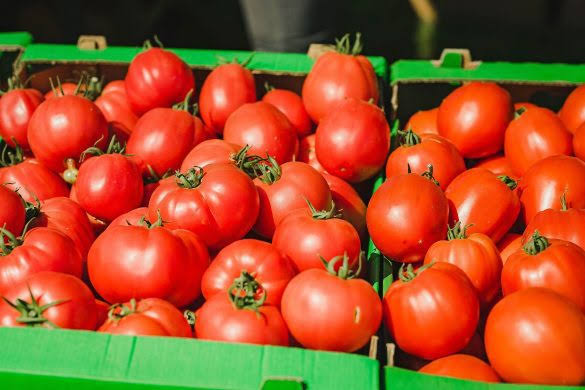The tomato prices are expected to decrease substantially, as the new crops started entering into the markets from the Nashik, Narayangaon and Aurangabad belt of Maharashtra and Madhya Pradesh, said Ashwini Kumar Choubey, Minister of State for Consumer Affairs, Food and Public Distribution.
The government directed the (NCCF) National Cooperative Consumers’ Federation of India Limited and the (NAFED) National Agricultural Cooperative Marketing Federation of India on Monday, to sell the tomatoes at the retail price of ₹50 per kilogram from 15 August 2023. These measures were taken to make tomatoes more accessible and affordable for the general public in the country.
Initially, the NCCF and NAFED procured the tomatoes from various tomato mandis in Andhra Pradesh, Karnataka and Maharashtra and made available to the consumers in Bihar, Delhi-NCR, Rajasthan and other states.The retail price was fixed at ₹90 per kg and later it was reduced to ₹80 per kg from 16 July and further it went to ₹70 per kg from July 20. The latest price of tomato was reduced to Rs.50 per kg.
Both NCCF and NAFED are major agricultural cooperatives in India that play a significant role in the supply chain. NCCF is engaged in promoting the consumer cooperatives and also to improve the consumers quality of life, whereas the NAFED aims to benefit the farmers by marketing the agricultural produce.
The NCCF had gradually increased the sale of the quantity of tomatoes to the retail consumers over the past few days by locating the mobile vans in 70 regions of Delhi, and around 15 locations in Noida. The retail sale of tomatoes is happening continuously through the Open Network for Digital Commerce (ONDC) platform by the NCCF.
The ministry said that the current increase in rates will boost farmers to grow more vegetables, which will help to stabilize the prices in the coming days. Market Intervention Scheme (MIS) was implemented by the (DAFW) Department of Agriculture & Farmers Welfare to protect the farmers who grow perishable commodities and support them during the event of a bumper crop period, where the arrival of crops will be at peak and the prices tend to fall below the cost of production and economic levels.
“Under this MIS scheme, the loss caused due to the fall in the price of crops will be borne equally between the state government and the central government. From the implementation of MIS till date, no proposal has been received from the government to address the distress sale of tomatoes”, said the Department of Agriculture and Farmers Welfare.

